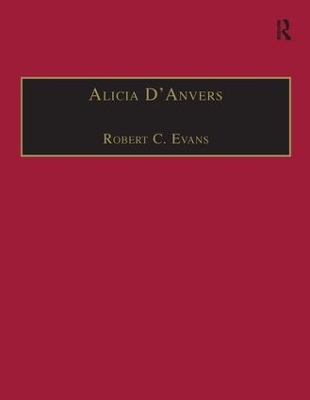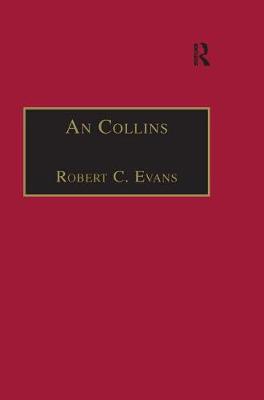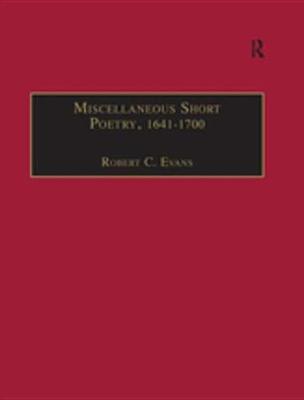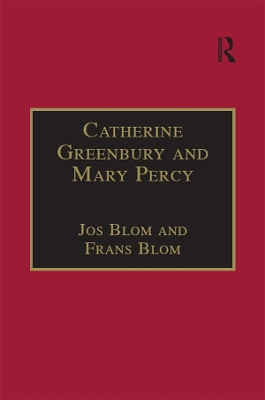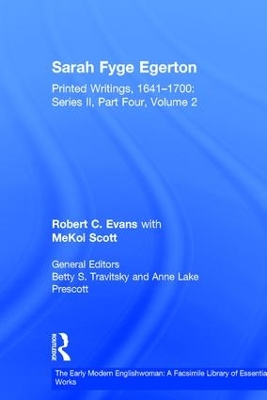The Early Modern Englishwoman: A Facsimile Library of Essential Works & Printed Writings, 1641-1700: Series II
5 primary works
Book 2
Born Alice Clarke, the daughter of Oxford university's 'first director of printing', Alicia D'Anvers' poetry demonstrates an intimate familiarity with Oxford and especially with the workings of the press. This volume reproduces three works: A Poem Upon His Sacred Majesty, His Voyage for Holland (1691), Academia: or, the Humours of the University of Oxford in Burlesque Verse (1691), and The Oxford-Act: A Poem (1693). A Poem Upon His Sacred Majesty... responds to William III's decision to visit his native Holland to negotiate with fellow Protestants about their conflict with Catholic France. William, often impatient with English political wrangling, sometimes hinted that he might abdicate and return to Holland. D'Anvers' poem reflects real anxieties about such an event, as well as solid support for the Protestant king. The copy reproduced in this edition is from the Houghton Library at Harvard University. Academia and The Oxford-Act concern more local matters. Probably D'Anvers' best poem, Academia satirises some of Oxford University's 'younger sort', often adopting language that seems as rough and coarse as that of the men that she mocks. The Oxford-Act focuses on the annual university 'Act' or commencement ceremony which lasted for several days and included many rituals. The copy reproduced here is from The Huntington Library. The copy of Academia is reproduced from that held at the Folger Shakespeare Library.
Book 2
An Collins' Divine Songs and Meditacions were first printed in a small octavo volume in London in 1653. The only extant copy is presently held at The Huntington Library and it is, therefore, this copy that is reproduced in this facsimile edition. It is an important text because it is one of the earliest volumes of collected poems by an English woman in the seventeenth century. The poems are especially intriguing because of the glimpses they provide into the life and mind of a woman writer during this period and because of the social, political, historical and religious contexts in which they are embedded. The precise identity of An Collins' remains a mystery, and scholars have had to rely on the Divine Songs and Meditacions for most of their understanding of its author, often drawing very different conclusions about her religious, social and political beliefs. To date critics have focused on the biographical and historical interest of the poems, but as Robert Evans highlights in his Introductory Note to the volume, these works also exhibit a rhetorical power and skill that merits further attention.
Book 3
This volume reproduces twenty short texts written by named and unnamed women in the years 1641-1700. These texts, selected and introduced by various hands, are grouped in thematic clusters for the reader's ease - poetry on religion, on politics, on society, on domestic/social affairs and on mourning. The poems are arranged chronologically within each cluster. The volume closes with Anne Wentworth's pamphlet England's Spiritual Pill.
Book 4
Jane Barker (1652-1732) is increasingly being recognised as one of the most important English women writers of the late-seventeenth and early-eighteenth centuries. The author of both poems and novels (including novels containing numerous poems), Barker was largely ignored for many years but has recently been the subject of intense interest and investigation. Despite this, no complete, collected edition of Barker's poems has yet appeared, and the present volume is the first reproduction of her important early published volume, Poetical Recreations, to be issued in facsimile as a printed book (rather than on microfilm). Jane Barker's life was rich in incident. Her early poetry was enthusiastically advocated by the male students at St. John's College, Cambridge. A persecuted Catholic and a subsequent longtime exiled supporter of the Jacobite cause in France following the 'Bloodless Revolution', she was also physically disabled and without great financial means, in part because she never married. Almost certainly her decision to begin publishing novels was motivated, on some level, by financial need. By the time she died, in March 1732, at the age of seventy-nine, she had lived a life that had been long, eventful, and accomplished, but by no means easy.
Book 4
Sarah Fyge Egerton (1668-1723) is an intriguing poet who wrote a great deal of poetry during a period when women poets were relatively rare. Her career also began at an astonishingly early age: she was barely fourteen years old when one of her poems was first printed in London. Throughout much of her life Egerton used poetry to share her thoughts, vent her feelings, and participate, to a highly unusual degree, in the public discourse of her times. The Female Advocate is perhaps her most famous single work. It was her very first publication and was printed three times in her own lifetime”in 1686, in a revised edition in 1687 and once more in 1707. The original 1686 edition is included in this volume along with the third edition of 1707, which is very rare. Alongside The Female Advocate in this volume is Egerton's Poems on Several Occasions, Together with a Pastoral. This is a diverse volume with no obvious pattern or design but which includes many poems which display real talent and can express surprisingly assertive or unexpected views, suggesting the volume deserves far more analytical attention than it has yet received.
